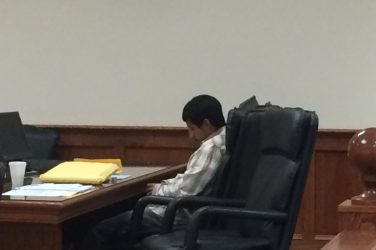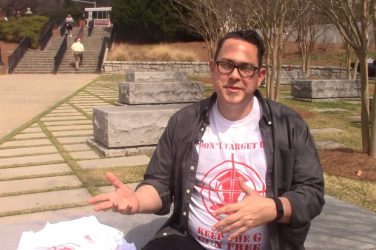Keep Athens-Clarke County Beautiful (KACCB), a local 501c3 nonprofit organization, is at the forefront of environmental stewardship with its innovative Adopt-a-Highway program. This initiative involves local volunteers adopting stretches of highway to maintain and improve environmental cleanliness.
KACCB has streamlined the way they collect litter data by implementing the Marine Debris Tracker app. This new user-friendly interface engages community members to rate and track what type of litter they find along roads in Athens.Additionally, the data collected through the Adopt-a-Highway program can inform policymakers about the extent of the litter problem in the community. This data-driven approach can help advocate for stronger policies and regulations to reduce plastic waste and promote environmental conservation.
The Adopt-a-Highway program helps reduce the amount of plastic that ultimately ends up in our oceans by keeping roadsides clean and preventing plastic waste from entering storm drains.When litter is left on roadsides, it is easily washed into storm drains during rainstorms. From there, it travels through the stormwater system and eventually reaches rivers and oceans. By removing litter from roadsides, volunteers beautify the community and prevent plastic pollution from reaching our waterways.
Why it’s Newsworthy: The issue of roadside trash and its environmental impact is a pressing concern globally. By highlighting KACCB’s initiative to reduce plastic waste and drive policy change through the use of innovative tools like the Marine Debris Tracker app, this story sheds light on practical solutions to a significant environmental problem. The use of data to quantify the extent of the issue and advocate for policy change, illustrates the potential for technology to drive positive environmental outcomes.
One key reason the Adopt-a-Highway program is so crucial is its role in preventing microplastics from reaching our oceans. Microplastics, tiny plastic particles less than 5 millimeters in size, pose a significant threat to marine life and ecosystems.These particles are often the result of larger plastic items breaking down over time due to environmental factors like sunlight and wave action. Once in the ocean, microplastics pose significant health risks to marine animals and contribute to the deterioration of aquatic ecosystems.
The Adopt-a-Highway program also plays a key role in raising awareness about plastic pollution and the importance of proper waste disposal. By actively participating in litter cleanup efforts, volunteers become more mindful of their own waste generation and disposal habits. This increased awareness can lead to long-term behavior change, with individuals making more sustainable choices in their daily lives.
While people can take steps to prevent microplastics from entering the ocean, addressing the issue becomes significantly more challenging, once they are there. Recognizing this, KACCB focuses on education to encourage Athenians to proactively prevent pollution, starting at the source: roads.
Harper Lawson is a senior majoring in journalism at the University of Georgia’s Grady College of Journalism and Mass Communication, with a minor in English.









Show Comments (0)